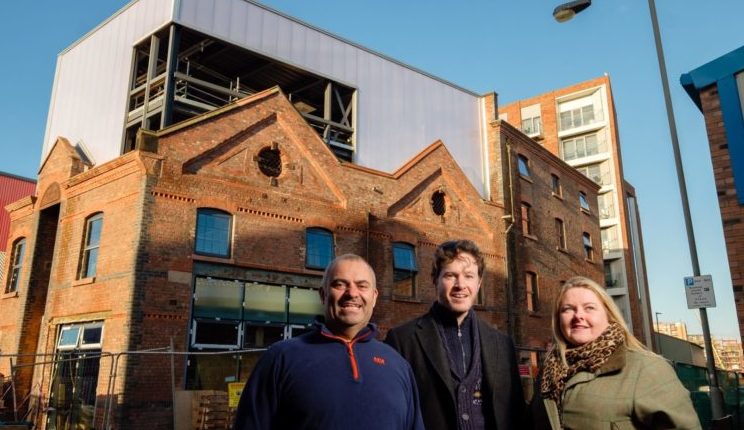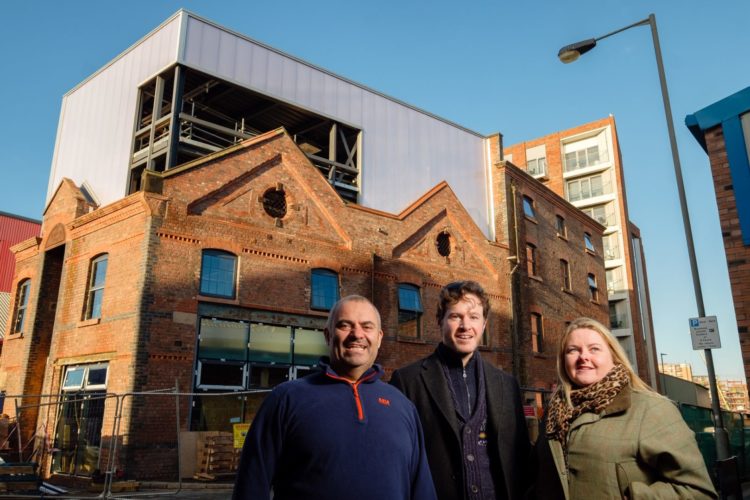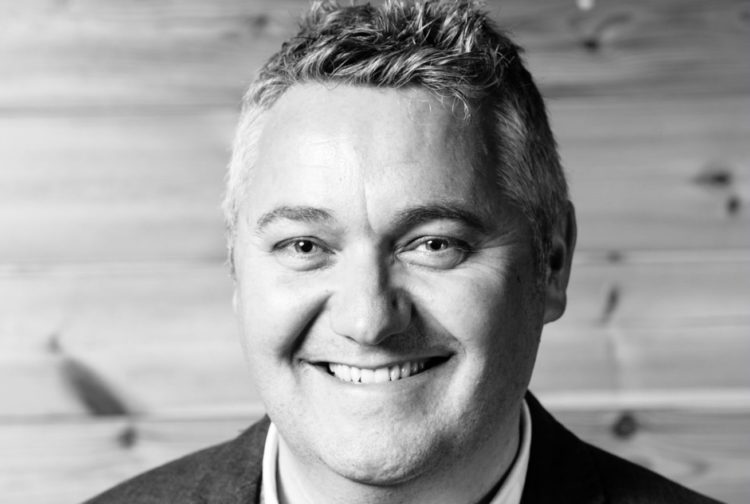
Fast-growing digital firms snap up space at Baltic’s £2.6m Digital House
Baltic Creative CIC says work on Digital House, a 19th century red-brick former docklands warehouse at 61–65 Norfolk Street, is close to completion with tenants already signing up. Tony McDonough reports

A new £2.6m business hub being created by Baltic Creative CIC in Liverpool is attracting tenants from the existing Baltic Creative who are full to capacity in their current studios.
Work on Digital House, a 19th century red-brick former docklands warehouse at 61–65 Norfolk Street, is close to completion and digital businesses at the original Baltic Creative were given first option on the accommodation.
Those who have taken up the offer, as they look expand their operations, include App and software developers Citrus Suite, Simul, which creates high-end sky renders for the games industry, and All About STEM, which promotes STEM careers in schools.
Accommodation at the new 17,000 sq ft facility is now be offered to the wider digital and creative sector in the Liverpool city region.
Affordable space
Digital House, funded by ERDF and Charity Bank, is Baltic Creative’s next step towards providing high-quality affordable space for digital companies in the Baltic Triangle.
Conceived from the beginning as a grow-on space for digital/tech businesses, the scheme has the capacity to house 20 companies and will contribute to the Baltic Triangle’s status as one of the fastest growing clusters in the UK.
Mark Lawler, managing director at Baltic Creative, said: “An essential component for Baltic Creative’s vision has always been to give tenants a space that would let them evolve naturally, without sacrificing their place within the community that has helped them thrive.”
Hiring formula
Citrus Suite has taken the top floor studio in the corner of the new scheme and is anxious to move in as soon as it can. Now 12-strong, its team has run out of space in its current shop front studio on Jamaica Street, forcing directors to pause their successful hiring formula of testing young people via in-house placements.
“It just gives us capacity and room to give people try-outs again,” says Citrus Suite co-founder Steve Donovan. “We haven’t been able to do that for the past 12 months because we haven’t had the space.
“Believe it or not, the past few jobs that we’ve secured, some of which have been £100,000-plus jobs, are from people who’ve just walked in from the street and said ‘Can you guys do apps?’. The more you speak to these people, the more it turns out that they want big back-end systems.”

New talent
For other tenants, the move is key to empowering their ability to attract new talent, not just house them. Roderick Kennedy is founder and chief executive of Simul. Supported by his staff of three, he uses his background in plasma physics to create high-end sky renders for the games industry.
Simul trades with partners across the US, Europe, Korea and Japan. The unique skills required to grow its team mean a dynamic environment is essential.
Roderick added: “When we’re hiring we’re generally looking for people with strong physics and mathematical backgrounds… people who are C++ coders … with knowledge of modern graphics hardware.
“It’s difficult, not least because people with those skills can go to London and work for a bank. So we have to compete with that. I think it’s very positive for recruitment if we can point to a building like Baltic Creative’s Digital House.”
Natural progression
All About STEM was founded by former British Gas engineer Michelle Dow. She said: “When the idea of the new scheme at Norfolk Street came along I thought ‘Oh. That’s a natural progression”, but still with our friends from across the road.
“Currently, we do pop into our neighbours shed studios in the creative campus and you see faces all around, and that’s definitely helped build our business. It sounds dead cheesy, but it’s that sense of community that makes it.”
